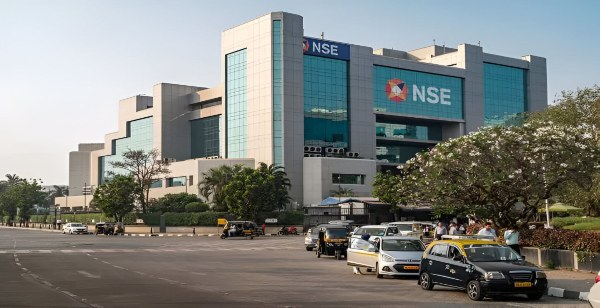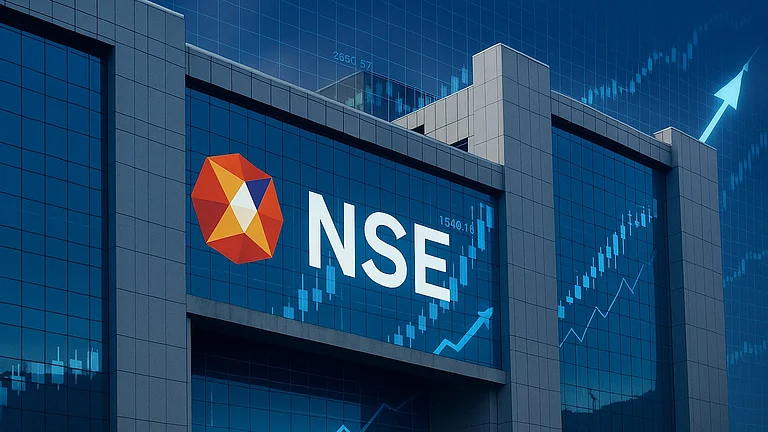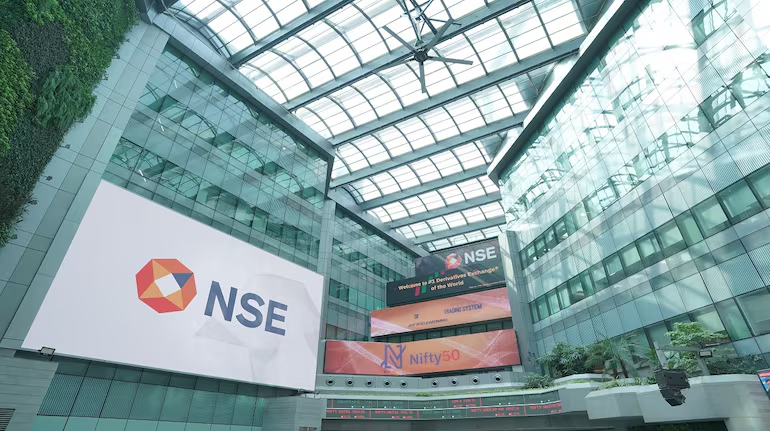
India’s financial market is abuzz with the latest developments involving the National Stock Exchange (NSE), as it seeks to turn a page on past regulatory challenges. The NSE, one of the largest stock exchanges in the world by trading volume, has reportedly offered a significant settlement amount of $118 million to the Securities and Exchange Board of India (SEBI). This strategic move is aimed at resolving a long-standing case and setting the stage for its much-anticipated initial public offering (IPO). The resolution of this case could mark a turning point for the NSE, enhancing its reputation and enabling it to pursue growth opportunities.
The Context of the Case
The settlement offer comes in the backdrop of a high-profile regulatory investigation into alleged lapses at the NSE. These lapses primarily involve the co-location trading scam, where certain brokers were purportedly given preferential access to the exchange’s trading system. This advantage allowed them to execute trades faster than others, raising questions about fairness and transparency in the stock market.
The investigation, which began several years ago, has cast a shadow over the NSE’s operations. Regulatory scrutiny intensified, with SEBI imposing penalties and restrictions, impacting the exchange’s plans to go public. The IPO, initially expected to be one of India’s largest, was shelved due to these regulatory hurdles. By offering a settlement, the NSE appears to be taking a proactive approach to close this chapter and restore confidence among stakeholders.
The co-location case is particularly significant because it touches on the core values of equity and transparency that underpin financial markets. By addressing these concerns, the NSE aims to set an example for other market players. This case has also sparked broader discussions about the need for enhanced regulatory oversight and systemic reforms to ensure a level playing field for all market participants.
Understanding the Settlement Mechanism
SEBI’s consent mechanism allows entities to settle cases without admitting or denying guilt. This provision aims to expedite the resolution of cases and reduce the burden on regulatory and judicial systems. The NSE’s $118 million offer underlines the seriousness of its commitment to comply with regulatory requirements and rebuild its reputation.
If approved, this settlement could serve as a precedent for other entities facing similar regulatory challenges. However, it’s crucial to note that SEBI’s acceptance of the offer is not guaranteed. The regulator will assess the proposal’s adequacy and its potential impact on market integrity before making a decision.
The consent mechanism has its critics, who argue that it might allow entities to escape accountability without addressing systemic issues. Nevertheless, proponents believe it is a pragmatic solution to resolve disputes swiftly, allowing all parties to focus on future growth.
Implications for NSE’s IPO Plans
The resolution of the SEBI case could reinvigorate the NSE’s IPO ambitions. The exchange has been eyeing the public markets to unlock value for its shareholders and raise capital for expansion. Analysts believe that resolving regulatory uncertainties is a critical step toward achieving a successful listing.
An IPO by the NSE would not only be a landmark event for the Indian financial market but also provide investors with an opportunity to participate in the growth of a premier stock exchange. With global markets watching closely, the NSE’s ability to address regulatory concerns will be pivotal in determining its valuation and investor interest.
A successful IPO could also open doors for the NSE to expand its offerings and invest in cutting-edge technologies. This includes exploring areas like blockchain-based settlement systems, advanced analytics, and algorithmic trading platforms. By positioning itself as a technology-driven exchange, the NSE can attract global investors and establish itself as a leader in innovation.
Market Reactions and Stakeholder Perspectives
News of the settlement offer has elicited mixed reactions from market participants. While some view it as a positive development that could pave the way for the NSE’s IPO, others remain cautious about the long-term implications. Critics argue that merely settling the case may not address underlying issues, emphasizing the need for systemic reforms to prevent future lapses.
On the other hand, stakeholders within the NSE are optimistic about the settlement’s potential to rebuild trust. The exchange’s management has reiterated its commitment to enhancing transparency, governance, and compliance standards. By taking these steps, the NSE aims to align itself with global best practices and reinforce its position as a market leader.
Investors, too, are closely monitoring these developments. For institutional investors, the resolution of regulatory challenges is a key factor in evaluating the NSE’s growth potential. Retail investors, who are increasingly participating in India’s stock markets, also stand to benefit from a stronger and more transparent NSE.
Broader Implications for India’s Financial Markets

The NSE’s settlement with SEBI could have far-reaching implications for India’s financial markets. As one of the country’s leading stock exchanges, the NSE plays a pivotal role in driving market activity and fostering investor confidence. Resolving regulatory disputes and addressing governance concerns can strengthen the overall integrity of the financial ecosystem.
Moreover, a successful IPO by the NSE could inspire other companies to pursue public listings, thereby deepening India’s capital markets. This aligns with the government’s broader vision of making India a global financial hub. By addressing past challenges and focusing on future growth, the NSE has the potential to contribute significantly to this vision.
The case also underscores the importance of robust regulatory frameworks in ensuring market stability. SEBI’s proactive approach in addressing these issues sends a strong message about its commitment to safeguarding investor interests. This, in turn, can enhance India’s appeal as an investment destination.
Challenges and the Road Ahead
While the settlement offer is a step in the right direction, the NSE’s journey toward resolving its regulatory challenges is far from over. The exchange must demonstrate its commitment to implementing robust internal controls and fostering a culture of compliance. This involves investing in technology, enhancing risk management frameworks, and ensuring accountability at all levels.
Additionally, the NSE will need to rebuild its brand image and regain the trust of market participants. This requires transparent communication and consistent adherence to ethical standards. By prioritizing these efforts, the exchange can position itself as a trusted partner in India’s financial growth story.
The NSE’s ability to navigate these challenges will also depend on its leadership’s vision and strategic direction. By fostering collaboration between regulators, market participants, and other stakeholders, the exchange can address systemic issues and drive meaningful change.
A Look Back: NSE’s Legacy and Impact
Since its inception in 1992, the NSE has played a transformative role in shaping India’s financial markets. By introducing electronic trading, the exchange revolutionized the way trades were executed, making the process faster, more efficient, and transparent. Over the years, the NSE has emerged as a benchmark for excellence, setting standards that other exchanges aspire to meet.
However, the co-location case has highlighted the need for continuous improvement. As markets evolve, so do the risks and challenges associated with them. The NSE’s ability to adapt to these changes and address vulnerabilities will be critical in maintaining its leadership position.
Future Prospects: Leveraging Technology and Innovation
The NSE’s future growth will be driven by its ability to harness technology and innovation. By leveraging advancements in artificial intelligence, machine learning, and big data analytics, the exchange can enhance its offerings and deliver value to its stakeholders. This includes providing real-time insights, personalized investment solutions, and secure trading environments.
Additionally, the NSE can explore opportunities in sustainable finance and ESG (Environmental, Social, and Governance) investing. By promoting green bonds and other sustainable investment products, the exchange can cater to the growing demand for responsible investment options. This aligns with global trends and positions the NSE as a forward-looking exchange.
Conclusion
The NSE’s offer to settle the SEBI case for $118 million is a significant development that could shape the future of India’s financial markets. By addressing regulatory concerns and resolving past issues, the exchange has an opportunity to restore its reputation and pursue its IPO ambitions. However, the path forward requires unwavering commitment to governance, transparency, and compliance.
As India’s financial landscape continues to evolve, the NSE’s efforts to rebuild trust and drive growth will be closely watched by stakeholders worldwide. The resolution of this case could mark a new beginning for the exchange, reaffirming its position as a key player in the global financial ecosystem.
The coming years will be crucial for the NSE as it embarks on this transformative journey. By staying true to its values and embracing change, the exchange can not only overcome its current challenges but also set new benchmarks for excellence in the financial world. This, in turn, will benefit investors, market participants, and the Indian economy as a whole.

